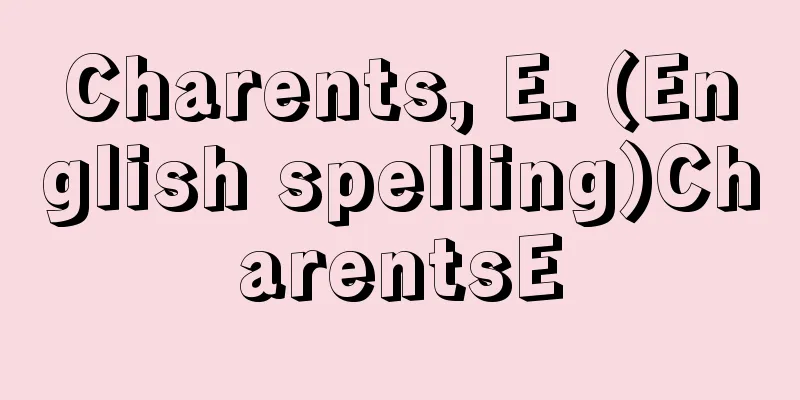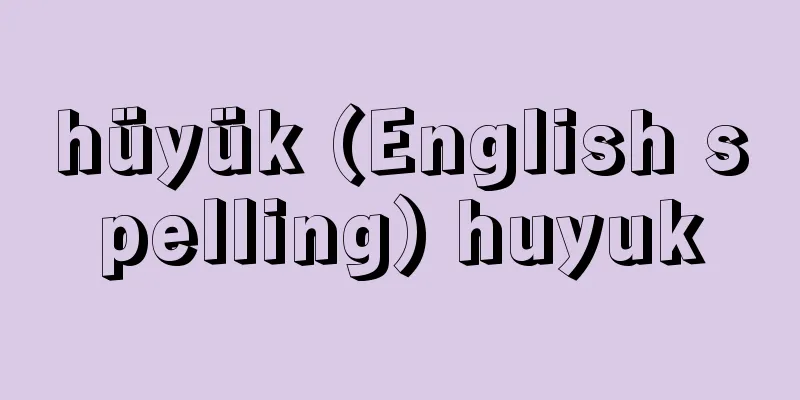Popular belief

|
Belief in the existence of superhuman powers and the knowledge and skills to deal with them, where it is difficult to prove causality. Superhuman powers include the powers of nature, gods, and spirits. The object of faith is in a higher position than humans, and humans are always in a position to pray to, worship, rely on, and depend on it, but in the case of popular beliefs, superhuman powers can be induced, opposed, or even controlled. Popular beliefs include omens, divination, taboos, sorcery, monsters, and spirits possessed by demons. Omens and taboos are knowledge, while divination and sorcery are skills. Monsters and spirits possessed are also knowledge, but they take on a complex form. First, omens are a sign (a warning) that some phenomenon is a precursor to an event that will occur in the future, and there are omens based on natural phenomena, such as an earthquake being a sign of a natural disaster or a sunset meaning good weather tomorrow, as well as omens related to people, such as physiognomy, palmistry, and dreams. If we classify omens based on the connection between cause and effect, they can be divided into four categories: direct associations, such as "If your thumb hurts when you stumble, it means you are being unfilial," indirect associations, such as "If you see a monk in the morning, it is bad luck," which associates monks with funerals, experiential knowledge such as observing the heavens and the sky, and spiritual phenomena, such as "If the bell on the Buddhist altar rings by itself, someone will die." Divination is a technique of judging omens and predicting outcomes from those omens. It exists in both the East and West, and at all levels of culture, but in primitive societies it was more connected to politics and people had a strong trust in its results, whereas in highly cultured societies it became more of a hobby and took on a more playful element. The purpose of divination is to seek the truth, make choices, and predict the future, but because the means and methods are arbitrary and often dependent on chance, it has tended to become a form of consolation and entertainment. Taboos are things that are forbidden based on popular beliefs, and include things related to land or objects, taboo actions, dates, times, directions, and taboo words. Taboos can also be categorized into four categories based on why they are forbidden: direct association, indirect association, experiential knowledge, and psychological factors. "If you lie down immediately after eating, you will turn into a cow or a dog" is a direct association with cows and dogs lying down immediately after eating. "If three people are photographed, the person in the middle will die" is an indirect association with death, bringing to mind the Amida Triad. Taboos based on experiential knowledge include the prohibition of building a residence at the tip of a cliff, in the mouth of a valley, or in front of a palace. These taboos mean to avoid places where cliffs collapse, flash floods, and strangers pass by. Taboos based on psychological factors include the taboo of praying only on the way to or from a funeral procession, which is called "kata-sourei," and the taboo of praying only on one of the nights, the 15th night of August or the 13th night of September, which is called "kata-mitsuki." Abnormalities, imperfections, asymmetries, etc. are taboo. Sorcery is majinai. Some people consider "majinai" to have a light meaning or to be limited to spells, but this is merely a difference between Chinese words and traditional Japanese. If we classify sorcery by the means used, focusing on the relationship between humans and superhuman powers, there are induction sorcery, such as mushi-okuri, which is a gentle way to send evil spirits out of the village border; stimulation sorcery, such as nariki-jōme, which tries to use the innate spiritual power of humans; counter sorcery, such as hanging a large straw sandal on one foot at the village border or placing something with thorns at the entrance to a house to prevent invaders; and control sorcery, in which humans have the upper hand, such as tying a stone Jizo statue with a rope and making a wish, saying that the rope will be undone if the wish is granted. Yokai are mainly misidentifications of natural phenomena based on the emotional turmoil and unstable psychology of the person who encounters them, but the conclusion that a certain sound is the work of a tengu (big-nosed goblin) and the conclusion that a drowned person is the victim of a kappa (water sparrow) are based on traditional knowledge. From the perspective of the person who encounters a yokai, it is like something has transformed (changed its appearance) and appeared. There are currently about 500 types of traditional Japanese yokai known to exist, of which nearly 300 are related to the belief in spirits, such as the ghost and wandering soul, and examples include the god of encounters, misaki, and hidaru. The remaining 200 or so are related to the belief in ancestral spirits, and include water gods such as kappa, mountain gods such as tengu and yamauba, household gods such as zashiki warashi, and other yokai that have been transformed. The last one, 'tsukimono', can be said to be a Japanese variation of shamanism, but is basically based on the belief in spirits that various spirits can possess people. It refers to the phenomenon in which animal spirits such as foxes, dog gods, and raccoon dogs possess the human body. There are two types of 'tsuki', where a spirit possesses an individual, and 'mochi', where the state is passed down through family lines. 'Mochi' is a type of mental illness that can be treated, but the judgement that a person is possessed by a fox spirit is based on traditional knowledge. The things called 'mochi' or 'suji' are often the jealousy of those around a family that has suddenly become wealthy, and are extremely unjust. Some of them cause social tension, such as broken engagements, and are unacceptable from the perspective of human rights. However, popular beliefs in general frankly reveal the true feelings of national and ethnic characteristics, and are important clues for investigating the spiritual life. [Shoji Inoguchi] "Japanese Folk Beliefs" by Shoji Inokuchi (1975, Kobundo) Source: Shogakukan Encyclopedia Nipponica About Encyclopedia Nipponica Information | Legend |
|
人間以上の力の存在を信じ、それに対処する知識や技術のうち、因果関係の証明の困難なものをいう。人間以上の力には、自然、神、霊などの力を含む。信仰の対象は人間より高い位置にあり、人はつねに願い、拝み、頼り、おすがりする立場にあるが、俗信の場合は、人間以上の力を誘導したり、対抗したり、支配することさえある。 俗信には、予兆、卜占(ぼくせん)、禁忌、呪術(じゅじゅつ)、妖怪(ようかい)、憑(つ)き物(もの)などがある。予兆と禁忌は知識であり、卜占と呪術は技術である。妖怪・憑き物も知識であるが、複合的なあり方をとっている。まず予兆は、なにかの現象が将来おこるできごとの前兆(前知らせ)であるということで、地震は天変地異の前触れであるとか、夕焼けがあると明日は天気だとかいうような自然現象による予兆と、人相・手相や夢知らせなど人に関する予兆とがある。原因と結果との結合状態から予兆を分類すると、「つまずいたとき、親指が痛いと親不孝」のような直接連想、「朝、坊さんに会うと縁起が悪い」のように、坊さんから葬式を連想する間接連想、観天望気などの経験知識、「仏壇の鉦(かね)がひとりでに鳴ると人が死ぬ」などの心霊的現象、以上の四つに分けることができる。 卜占はウラナイで、予兆を判断し予兆から結果を予測する技術である。洋の東西、文化程度の高低にかかわらず存在するものであるが、原始的な社会では、より多く政治に結び付き、その結果に対する信頼も強いが、高文化社会では趣味的となって、遊びの要素が強まってくる。卜占の目的は、真実の探求、選定・選択、未来の予測であるが、その手段・方法が恣意(しい)的であり、偶然に左右されることが多いため、気休めや遊びの傾向に進んだ。 禁忌は俗信上の禁止事項で、土地や物に関するもの、忌まれる行為、日時や方角に関するもの、忌みことばなどがある。禁忌の場合も、なぜ忌まれるのかという観点から、直接連想、間接連想、経験知識、心理的要因の四つに分類することができる。「ご飯を食べてすぐ横になると、牛または犬になる」は、牛や犬が食べてすぐ横になるのを直接的に連想したものである。「3人で写真に写ると真ん中の人が死ぬ」は、弥陀(みだ)三尊を思い浮かべ、仏さまから間接的に死を連想したものである。経験知識によるものには、「尾先、谷口、宮の前」などに住居を建てるなという禁忌がある。崖(がけ)崩れ、鉄砲水、よそ者の往来する場所を避けろということである。心理的要因に基づくものには、葬列の行きか帰りか一方だけ拝むのを「片葬礼」、8月十五夜と9月十三夜の片方だけ祭るのを「片見月」といって忌む。異常性、不完全、非対称などが禁忌の対象になっている。 呪術はマジナイである。「まじない」を軽い意味合いのものや呪文(じゅもん)に限定するとらえ方もあるが、漢語と在来の日本語との違いにすぎない。人間以上の力と人間との関係を主眼に、手段によって呪術を分類すると、虫送りのように穏やかな手段で悪霊を村境から外に送り出す誘導呪術、成木(なりき)責めのように本来もっている霊力を利用しようとする触発呪術、村境に片足の大草鞋(わらじ)を下げたり、家の門口にとげのあるものをつけたりして外敵の侵入を防ごうとする対抗呪術、石地蔵を縄で縛って願(がん)をかけ、かなえてくだされば縄をほどいてあげますというように、人間が優位にたつ支配呪術などがある。 妖怪は、体験者自身の精神的な動揺と不安定な心理に基づき、主として自然現象を誤認したものであるが、ある音響を天狗(てんぐ)のしわざと断定し、水死人を河童(かっぱ)の被害者と判断するのは、伝承的な知識に基づく。妖怪に出会った人の側からいうと、何ものかが化けて(姿を変えて)出現したことになる。現在知られている日本の伝承的な妖怪は500種目ほどあるが、そのうち亡魂・遊魂など御霊(ごりょう)信仰系のものが300近くあり、行逢(ゆきあ)い神、みさき、ひだる神などの例がある。残りの200ほどは祖霊信仰系のもので、河童などの水神、天狗・山姥(やまうば)などの山の神、座敷(ざしき)わらしなど家の神、その他の妖怪化したものをあげることができる。 最後の憑き物は、シャーマニズムshamanismの日本的な一変形ともいえるが、基本的には種々の霊が人にのりうつるという霊魂信仰に基づく。狐(きつね)・犬神・狸(たぬき)などの動物霊その他が人体に憑依(ひょうい)する現象をいう。個人にのりうつるという「憑き」の現象と、その状態が家系を伝わるという「持ち」の現象とがある。「憑き」は治療の可能な精神的な病気の一種であるが、狐の霊がのりうつっているなどと判断するのは伝承的な知識に基づく。「持ち」とか「筋(すじ)」とかいわれるものは、急に豊かになった家などに対する周囲のやっかみなどが多く、きわめて不当なものである。縁組みが破談になるなど社会的な緊張をもたらすものがあり、人権のうえからも許容することができない。しかし俗信一般は、国民性や民族性の本音の部分を率直に示しており、精神生活を究明していくための重要な手掛りになるものである。 [井之口章次] 『井之口章次著『日本の俗信』(1975・弘文堂)』 出典 小学館 日本大百科全書(ニッポニカ)日本大百科全書(ニッポニカ)について 情報 | 凡例 |
Recommend
Mibu clan
A medieval local feudal lord in Shimotsuke. Based ...
Koan Rei-setsu (Kōan Etiquette)
A book of court etiquette and customs. 1 volume. ...
thought
…It is said that the first person to take a photo...
Kada Arimaro
Year of death: 1751.9.23 Year of birth: 1706 A sch...
Sugaya Hallway - Kankeroka
...The last six volumes are written in prose. The...
physical change
…Generally, when a material system undergoes a ch...
Floating Fabric - Floating Fabric
〘 noun 〙 Fabric made with a floating weave. Receiv...
Lychnissenno chalcedonica (English spelling) Lychnissennochalcedonica
…[Eiji Miki] [Munemin Yanagi]. … *Some of the ter...
Rotating mill - Rotating mill
…Rod mills are more suitable for coarse grinding ...
Devil's Violin
…In 1847, she married the famous dancer F. Cerrit...
Parent soldier - Shinpei
Soldiers organized to protect the Imperial Palace...
Kitto - Kitto
…It is widely distributed from central Honshu sou...
Lycopodium cernuum (English spelling) Lycopodium cernuum
…[Masahiro Kato]. . . *Some of the terminology th...
Left-handed
The dexterity and motor ability of the left side ...
Owari Domain
A powerful clan among the related clans, with its...



![Yamazaki [town] - Yamazaki](/upload/images/67cd0ded68717.webp)
![Miiraku [town] - Miiraku](/upload/images/67cceec3d6ea8.webp)




